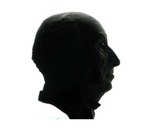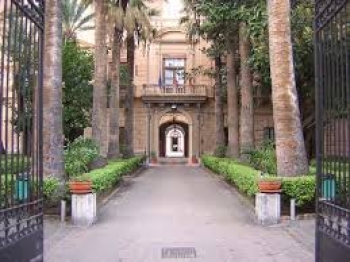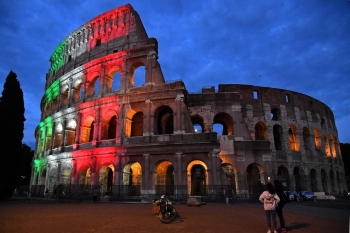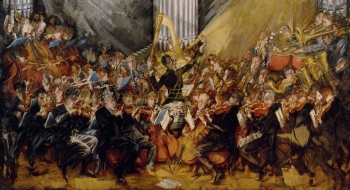Ministry of Culture of the Russian Federation
Nikolai Rimsky-Korsakov State Conservatory of St. Petersburg
Department of Music Theory
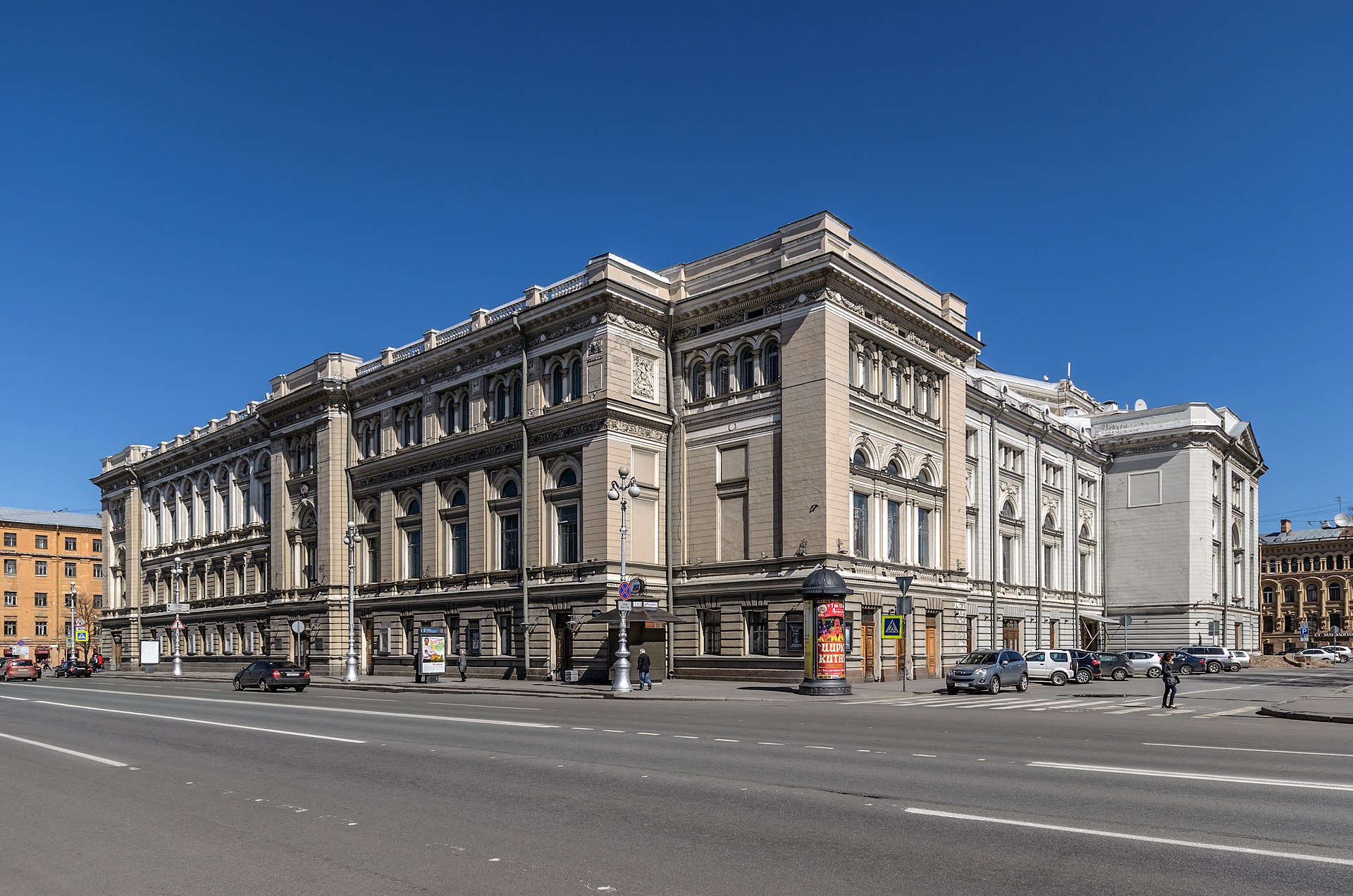
Excerpts from Veronika Nikolaevna Dragan's thesis
Scientific and methodological approach of Ilya Musin and the publication of Ennio Nicotra 'Introduction to the technique of conducting according to the Ilya Musin system'
Final qualification work II level degree
specialty 53.05.05 Musicology
Speaker: the dean of the chair of music theory, professor Elena Vladimirovna Titova
St. Petersburg 2018
INTRODUCTION
About two hundred years have passed since the appearance of the professional figure of the conductor, but until now the art of conducting has been considered one of the least studied areas of the musical sphere, this urgently requires a detailed study. This is eloquently expressed by the testimonies of many distinguished musicians.
In this regard, we report the words of eminent conductors, such as Kirill Kondrashin, '... there is probably no other musical branch that is so little analyzed in a scientific way'. Similarly, Ilya Musin writes: 'It is unlikely that someone, in one way or another, in contact with the world of conducting, has not asked: what kind of mysterious art is this?' The great masters of the direction of the nineteenth and twenty-first centuries took an interest in the clarification of this complex question, reflecting in their literary works their subjective vision on the problems inherent in this discipline.
From the moment when this figure was consolidated as a profession, many texts have appeared that try to analyze the various aspects of the directors' performance. In the reasoning of the authors of these works, whether it is an orchestra conductor, a composer, an interpreter or a musical figure, their individual approach to the art of conducting is transmitted. There is therefore a considerable volume of literature on conducting, varied in genres and in the problems addressed.
The range of literature on the subject under study includes monographs, scientific articles, textbooks, dissertations, popular scientific publications, methods, etc. Many works deal with a series of problems relating to the profession of the conductor, teaching methods, and many other problems relating to the lyric-symphonic direction areas. The first publications on the subject came to light almost simultaneously with the appearance of the conductor's profession, this phase is traditionally indicated in the second half of the nineteenth century. The works of leading composers-conductors of the mid-nineteenth century, Richard Wagner and Hector Berlioz, whose activities have been an important impetus for the development of art direction, are among the first to be studied.
They focus on the interpretation of musical compositions, on the preparation of works for performance, on the various problems of the formation of the executive process. Later, with the development of the profession of the orchestra director, when a type of figure is outlined, whose creative activity is mainly focused on interpretation, and not as previously engaged in the composition of musical works, numerous works appear on different problems . In the texts of some famous directors, who reflect their experience, an individual approach to the art of management is traced.
The literary sources between the end of the nineteenth century and the first half of the twentieth century give an idea not only of the problems of the managerial problems of a given era, but also of the characteristics of the executive style of some directors.
These include works by conductors, such as Felix Weingartner's monograph 'On the Direction' in which he describes some of the interpretative 'oddities' of some conductors-interpreters, which were the result of the blind imitation of Wagner's actions, and later of his pupil and close collaborator of Hans Bülow see R. Strauss's article 'On composition and direction', which contains statements on technique and more.
In the same series there are texts by great directors from the beginning of the 20th century and the following decades, in which discussions on various aspects of management are held and some valuable advice is given to young conductors: see the article by V. Fur Twilight 'On the Conductor's Craft', the monograph by G. Wood On Conducting, the autobiography of S. Münch 'I am a conductor', the book by A. Boult 'Thoughts on direction', E. Leinsdorf 'In Defense of the Composer ', G. Dehanta' Directing ', etc. In Russia, literature on direction until the 18th century was mainly associated with choral performances. In scientific journals, one of the first literary sources is often cited containing information on some direction techniques, the Grammar of the Musician, by Diletsky. Specific works on the theory and practice of choral conducting begin in the 20th century. Among these, first of all, Chesnokov's book 'the Chorus and how to direct it' must be mentioned ”.
A little later, with the development of the theory of choral conducting, a large number of works appeared, including 'Essays on the choir conducting technique' by K. B. Ptitzi, 'Basics on the technique of conducting' by N.F. Wheels, the book of K.A. Olkhova, Theoretical foundations of the conductor's technique, S.M. Kazachkova 'The conductor and his setting', etc. A number of works are dedicated to working with the choir: 'Choral studies and choir management' G.A. Dmitrevsky, 'Theory and practice of working with the choir' A.A. Egorova and many others. One of the first works in the field of conducting in Russian literature is the article by N.А. Rimsky-Korsakov 'A' management epidemic '.
In it, Rimsky-Korsakov, describing the situation in this sector at the turn of the nineteenth and twentieth centuries, provides a classification of directors according to their practical activities, describing the qualities they should possess. In the middle of the 20th century, the literature on conducting flourished with publications containing the reflections of important directors on the versatility and complexity of the profession, its most illustrious representatives, the meaning of the profession, the personal qualities of the conductor, etc. However, practical management issues are reported to a lesser extent than those listed above. L.M. Ginzburg about orchestral conducting writes that '... the idea of creating a theory of performing art ...' was born in the early twentieth century.
Ginzburg identifies the first works of this type in R. Kan-Speyer's 'A Guide to Conducting', as well as B. Walter's books, Pazovsky's 'Notes of the Conductor', and H. Scherchen's 'Textbook of Conducting' . Although these writings set out some methods and principles for conductor education, they do not solve the problem of learning the technique of conducting at the bottom. Later, in the second half of the twentieth century, monographs, textbooks, educational and methodical works appeared, concerning various problems inherent in teaching, in particular, the mastery of manual technique. These include works such as the monographs 'Fundamentals of Leadership Techniques' by Nikolay Malko, M. Bagrinovsky 'Conducting technique of hands', E. Kahn 'Elements of conducting', the book by A.P. Ivanov-Radkevich 'On the conductor's education' etc. Among the existing works in this area there are significant monographs by I.A. Musin 'Conducting Technique', 'On the conductor's education', and 'The conductor's language of gesture'. With the growing popularity of the orchestra conductor profession, with the creation of modern and complex compositions, the range of issues related to the conducting of texts is expanding.
There are scientific works aimed at studying various aspects of the conductor's psychological activity. This problem is reflected in Yerzhemsky's greatest works: 'Studies for Mastering: Internal Psychomotor Skill', 'Psychology of Management', 'Regularity and Paradoxes of Management'. go on...



